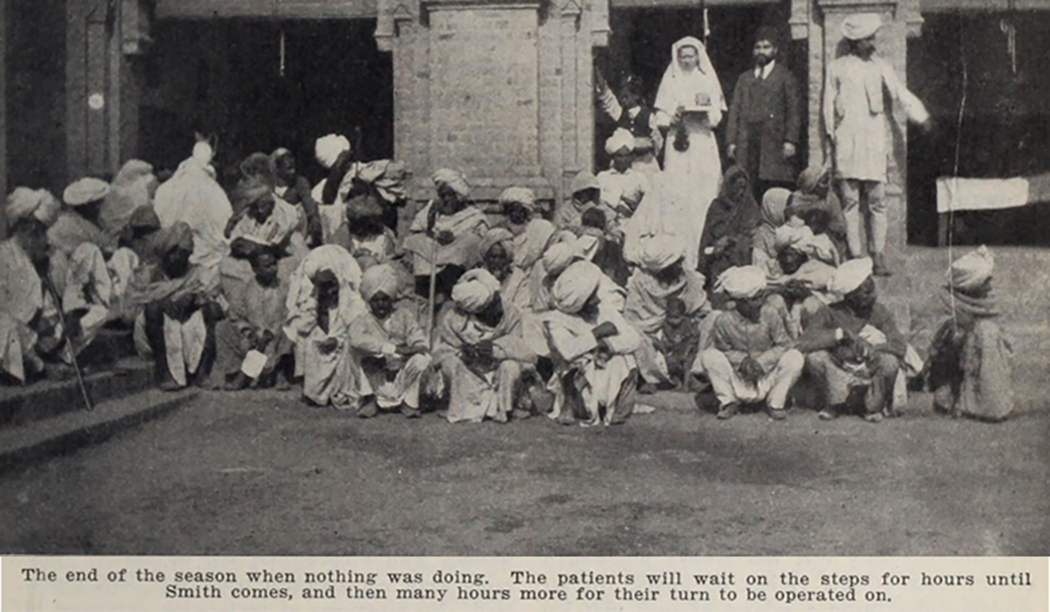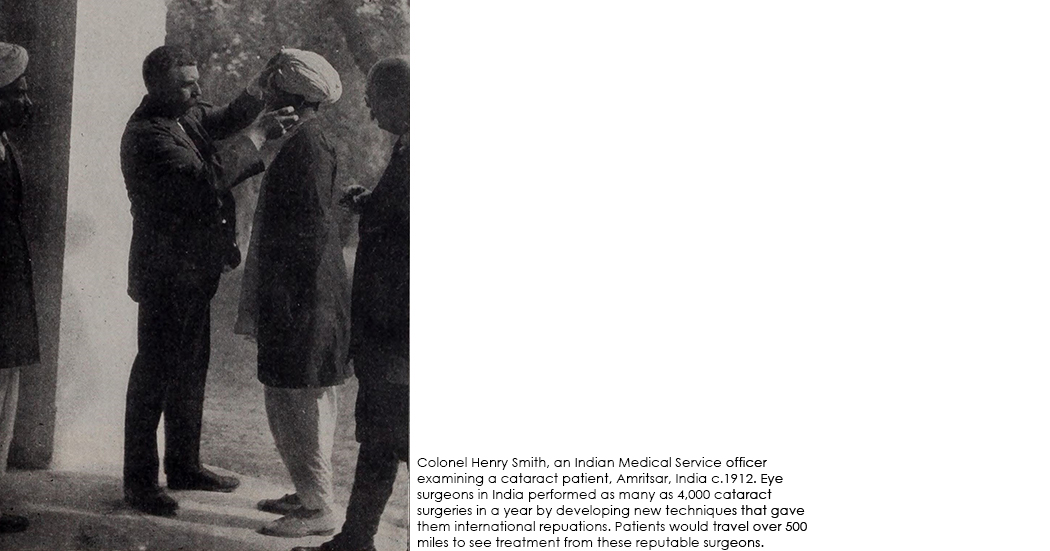Complexity and Collaboration
Recognising complexity is essential to how we work and it has a real-world base: data is often incomplete; or problems have contexts that can be messy.
We strive to understand this complexity, working with other disciplines and non-academic partners.
We value the key insights and solutions that often come from outside the academy: experience is knowledge.
Read our case studies below:
Decolonizing the History of Biomedicine: Patients and Hospitals in India - Samiksha Sehrawat

Patients with cataract waiting to be operated on in Amritsar, Punjab, India, c. 1912. The British nurse in the background supervised a nursing staff comprising of male Indian medical attendants. © Samiksha Sehrawat
This research challenges a Eurocentric view of the history of biomedicine and explains how western medicine became global medicine during the age of empire. This project engages with important debates on the role of the state in providing healthcare and the provision of medical care for disadvantaged populations.
Children's Literature and the Adult Audience: Developing the Seven Stories Archive Collection
Anne Whitehead, Lucy Pearson, Sarah Lawrence and Dr Jessica Sage
This Knowledge Transfer Partnership (KTP) brought together research in English Literature with Seven Stories’ expertise in public engagement as the National Centre for the Children’s Book. Working with the newly acquired Michael Morpurgo archive, its aim was to develop Seven Stories’ engagement with adult audiences by integrating academic research into their curation of the exhibition Michael Morpurgo: A Lifetime in Stories.
Common Land in England and Wales: Past, Present and Future - Chris Rodgers
The Contested Common Land research project investigated notions of sustainability and their relationship to the governance of common land in England and Wales from the early mediaeval period to the modern day. This work is intended to contribute to the implementation of current public policy that stresses the importance of ‘reconnecting’ people and nature and promoting the development of cultural ecosystem services form securing greater access to green space.
Options for Sustainable Multi-Storey Communities - Gareth Powells

This interdisciplinary research project focused on the sustainability of urban high-rise living in two sites in Newcastle (Shieldfield and Byker). The aim was to identify opportunities for collaborative interventions that could improve quality of life and quality of services for resident while also reducing CO2 emissions and helping to mitigate climate change.
N8 Policing Research Partnership Catalyst project:
Innovation and the Application of Knowledge for More Effective Policing - Jill Clark
This five-year programme of research and knowledge exchange is pioneering an innovative collaboration between police forces and eight universities in the North of England (N8).
It has three main objectives. Firstly, to provide mechanisms to bring researchers and practitioners together to design and undertake research that focuses specifically on new and emerging challenges for policing. Secondly, to build research co-production capacity. Thirdly, to draw on the knowledge and expertise of the HE sector in order to strengthen the evidence base of police policy, practice and training and to support the professionalisation of policing.
These activities will also secure a culture change in the use of research in policing and relations between researchers and policing professionals.

